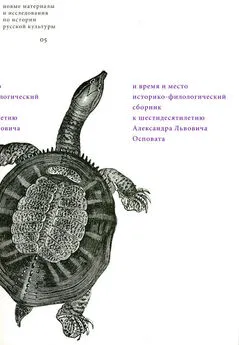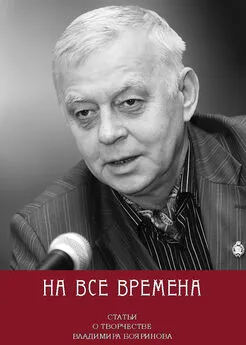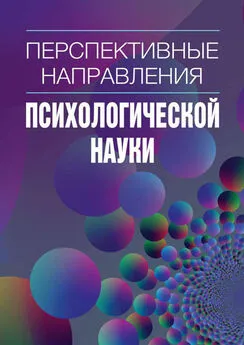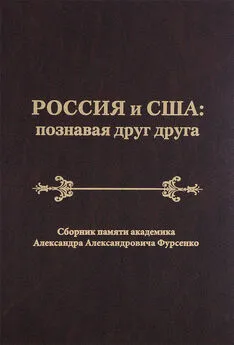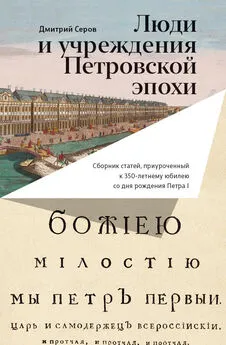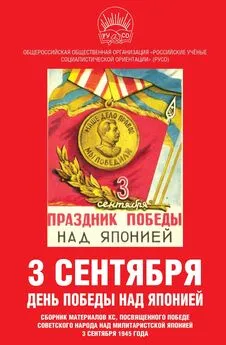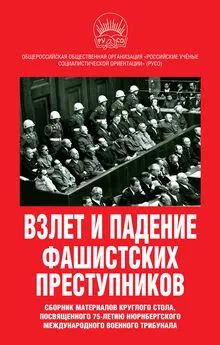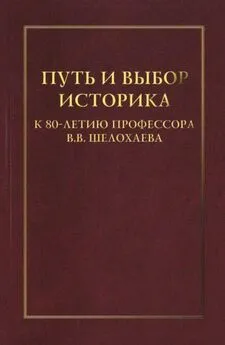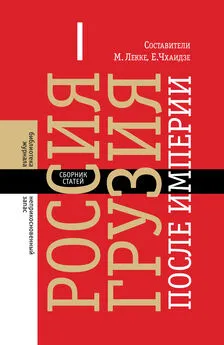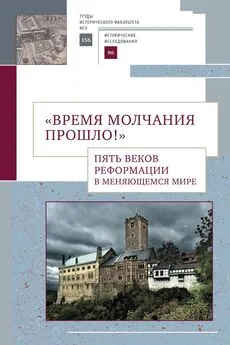Сборник статей - И время и место: Историко-филологический сборник к шестидесятилетию Александра Львовича Осповата
- Название:И время и место: Историко-филологический сборник к шестидесятилетию Александра Львовича Осповата
- Автор:
- Жанр:
- Издательство:Литагент «Новое издательство»6e73c5a9-7e97-11e1-aac2-5924aae99221
- Год:2008
- Город:Москва
- ISBN:978-5-98379-101-5
- Рейтинг:
- Избранное:Добавить в избранное
-
Отзывы:
-
Ваша оценка:
Сборник статей - И время и место: Историко-филологический сборник к шестидесятилетию Александра Львовича Осповата краткое содержание
Историко-филологический сборник «И время и место» выходит в свет к шестидесятилетию профессора Калифорнийского университета (Лос-Анджелес) Александра Львовича Осповата. Статьи друзей, коллег и учеников юбиляра посвящены научным сюжетам, вдохновенно и конструктивно разрабатываемым А.Л. Осповатом, – взаимодействию и взаимовлиянию литературы и различных «ближайших рядов» (идеология, политика, бытовое поведение, визуальные искусства, музыка и др.), диалогу национальных культур, творческой истории литературных памятников, интертекстуальным связям. В аналитических и комментаторских работах исследуются прежде ускользавшие от внимания либо вызывающие споры эпизоды истории русской культуры трех столетий. Наряду с сочинениями классиков (от Феофана Прокоповича и Сумарокова до Булгакова и Пастернака) рассматриваются тексты заведомо безвестных «авторов» (письма к монарху, городской песенный фольклор). В ряде работ речь идет о неизменных героях-спутниках юбиляра – Пушкине, Бестужеве (Марлинском), Чаадаеве, Тютчеве, Аполлоне Григорьеве. Книгу завершают материалы к библиографии А.Л. Осповата, позволяющие оценить масштаб его научной работы.
И время и место: Историко-филологический сборник к шестидесятилетию Александра Львовича Осповата - читать онлайн бесплатно ознакомительный отрывок
Интервал:
Закладка:
And Baron Korf, as precise and unforgiving as Pushchin is generous, has this to say about Pushkin:
Easily enraged, with unbridled African passions (his heritage on his mother’s side), eternally preoccupied, eternally immersed in poetical daydreams, spoiled from childhood by the praise of flatterers that can be found in every circle, Pushkin neither as a schoolboy nor afterwards in society had anything appealing in his deportment… In him was no external or internal religion, no higher moral feelings. He even asserted a kind of bragger’s pride in the supreme cynicism he showed these subjects… and I do not doubt that for the sake of a caustic word he sometimes said even more and worse than he thought and felt. 5
As harsh as Korf’s appraisal is, there is also much truth in it, and when placed next to Pushchin s it affords us a rather accurate picture of how the adolescent Pushkin must have seemed to both well-wishers and to those he may have antagonized.
As is evident from these character sketches, Pushkin was in need of yet a third nickname: “Sem’ raz otmer’, potom otrezh’” (translation: “Measure Seven Times Then Cut,” or “Look Before You Leap”). How many times in later life he got himself in hot water by saying or doing something on impulse; the examples – insulting the principled Karamzin in a epigram, satirizing the powerful Uvarov as a gold-digger – are legion. At this stage, however, the consequences were less dire and often humorous. For example, one of the senior ladies in waiting to Alexander’s wife, the Empress Elizaveta Alekseevna, had a pretty maid, Natasha, and it was not long before Pushkin and his mates became infatuated with her. Once, as the boys were walking in smaller groups through the darkened palace corridor where the ladies’ chambers were located, Pushkin happened to be alone and heard the rustle of a dress nearby. He was certain it was Natasha. Without giving it a thought he rushed up and tried to embrace and kiss her, only to find out as the door suddenly opened that he had in his arms old Princess Varvara Volkonskaia She was insulted, Pushkin mortified. Soon thereafter the tsar himself was informed by the princess’s brother and called the Lyceum’s director, Egor Engelhardt, on the carpet. “What is going to come of this?” complained the sovereign. “Your schoolboys not only steal my ripe apples through the fence and beat the gardener’s watchmen, but now they also pester my wife’s maids of honor.” 6The tsar told Engelhardt to have the boy whipped, but luckily he refused and it eventually blew over. In the wake of the brouhaha an unrepentant Pushkin described the princess in an epigram as “an old monkey” (une vielle guenon).
Yet another episode involved Marie Smith, a young widow who was living in the Engelhardt household and participating in school theatricals. Predictably, Pushkin was smitten with her comeliness and before long wrote her a poem, “To a Young Widow” (K molodoi vdove), in which he urged her to forget the dead, as they will not return, and celebrate life with the living. The verses seemed more than a little irreverent, which was the point. In any event, this lady too was offended, but what made the contretemps particularly awkward was the fact that Marie Smith was pregnant. She expressed her indignation to Egor Antonovich, who himself may not have been indifferent to her, and he censured Pushkin for it. Finally, a misadventure without amorous overtones is the one that has come down in Lyceum lore as the “gogel’-mogel”’ affair of 1814. This time three boys, Pushkin, Pushchin, and Malinovskii, smuggled a bottle of rum into the building with the help of Foma, one of the diad ’- ki. They then created a grog-like concoction of eggs, sugar, and alcohol which they heated in the samovar. Muffled laughter and noise could be heard from the hall, which brought Frolov, the on-duty tutor, to the scene to investigate. The conspirators had enough time to toss their wine glasses out the window and disappear to their rooms, but one of them, Aleksandr Tyrkov, was discovered clearly in his cups (1,132–133). Frolov told the director, who then reported it to the Minister of Education, Count Razumovskii, the senior state official in charge of the Lyceum. Razumovskii came in person from St. Petersburg, called the boys out of class and gave them a severe reprimand, with the punishment to follow – two weeks on their knees throughout morning and evening prayer services, placement at the end of the dining table, and a sentence citing their names and a description of their crime in the school’s black book. 7Despite the apparent seriousness of the offense, Pushkin wrote another impromptu ditty, this one taking the hussar Denis Davydov’s rollicking call to wine and women as its model, in which it is not sobriety that is banished but Foma the diad’ka , who was let go for his part in the affair.
So, against this background of Lyceum comradeship and shared experience how did the mercurial schoolboy begin to become, to quote Nabokov, “Russia’s most essential and most European” writer, “the greatest poet of his time (and perhaps of all time, excepting Shakespeare)”? 8Perhaps the first thing that alerts us to the youngster’s potential uniqueness is his receptiveness to the creative impulse, to the way that sound and sense suddenly come together in his consciousness and then are born into (zarozhdenie tvorchestva ) something altogether different and mesmerizing. 9Pushkin, let us recall, has forever been associated with “harmonious sounds” ( garmonicheskie zvuki , which subsequent scholars have duly linked to the influences of Batiushkov and Zhukovskii) and a free, unfettered intonation (intonatsiia). But even here the freedom with which he is able to say something seems in excess of anything he could have learned from respected older contemporaries. This is how he presents the onset of the rhyming urge in “To My Aristarchus” ( Moemu Aristarkhu , 1815):
Сижу ли с добрыми друзьями,
Лежу ль в постеле пуховой,
Брожу ль над тихими водами
В дубраве темной и глухой,
Задумаюсь – взмахну руками,
На рифмах вдруг заговорю…
[I can be sitting with good friends,
Or lying in a feather bed,
Or wandering near quiet waters
In an oak grove dark and deserted,
When I fall to musing, wave my arms,
And suddenly start to speak in rhyme…]
The process comes over the speaker unbidden, and this very unbidden quality is signaled by the simplicity and parallelism/internal order of the utterance (i.e. it is natural, organic): the three imperfective verbs (“sizhu,” “lezhu,” “brozhu”) followed by three locative constructions denoting uninterrupted activity are then broken into by the three perfective verbs (“zadumaius,” “vzmakhnu,” “zagovoriu”) betokening a change in status. That the initiation of the verbal rush is preceded by a physical gesture (“vzmakhnu rukami”) reinforces the seemingly spontaneous, almost “metabolic” character of the shift to creative activity. And so it will be Pushkins entire poetic career. Examples are too numerous to list here, hence we will limit ourselves to the following excerpt from the great meditative poem,“Osen (Otryvok)” (Autumn [AFragment], 1833):
X
…
Душа стесняется лирическим волненьем,
Трепещет и звучит, и ищет, как во сне,
Излиться наконец свободным проявленьем —
…
XI
И мысли в голове волнуются в отваге,
И рифмы легкие навстречу им бегут,
И пальцы просятся к перу, перо к бумаге,
Минута – и стихи свободно потекут.
…
XII
…Куда ж нам плыть?…….
……………………………
……………………………
(III, 321; my emphasis)
X
The soul is overwhelmed by lyrical agitation,
It trembles and sounds aloud, and seeks, as in a dream,
To pour itself out at last in a free display —
…
XI
And thoughts in one’s head surge in brave agitation,
And light rhymes go out to meet them,
And one’s fingers ask for the pen, the pen for paper,
Wait a minute and verses begin to flow freely.
…
XII
.. Where shall we sail?…….
……………………………..
……………………………..
Once again Pushkin aligns the lyrical urge, the need to express the harmony accumulating within, with something physical, concrete – the fingers reaching out for the pen and the pen seeking the paper.
The second thing we immediately notice, which is tied to the unconstrained quality of his intonation, is the young Pushkin s astonishing genre dexterity, where each genre equals a distinct voice, style, lexicon, poetic structure. This facility with different ways of saying things poetically could be an aspect of the legacy of parlor games and wordplay that the boy absorbed in the presence of his parents (Sergei L’vovich was known in the literary salons of St. Petersburg as a kind of verbal quick-change artist) and their friends. In any event, for his classes and on his own Pushkin tried his hand at all the different types of poem practiced at the time. Madrigal, noël, elegy, friendly epistle, epitaph, Anacreontica, ode, romance, hussar drinking song, epic, love lyric – he fit into each of these effortlessly. It was as though he were trying on a new costume with each one and took delight in cavorting before the mirror. 10His ability to mimic, to ventriloquize the voice zone of the genre, was what separated him from the others. 11In other words, he had the poetic equivalent of perfect pitch. An illustration shows the difference between Pushkin and his mates in this respect. Illichevskii loved to create anagrams, or in his terms, “charade logogriphs,” that acted out a word in the form of a riddle. These puzzles were then included in The Lyceum Sage (Litseiskii mudrets ), one of the school’s several journals, which everyone read and in which Pushkin took active part. In one such anagram Illichevskii describes three items without naming them which when combined would decorate a gravesite – something bundled together (kipa = “stack”), a legendary, though faint-hearted warrior (Paris), and a type of food (ris = “rice”). The answer yields kiparis , or “cypress tree.” 12Illichevskii’s riddle is self-contained (there is nothing extraneous to it) and shows beautifully how these bright young students came at language.
But in Pushkin’s wordplay there was invariably a kind of challenge. In 1816 he came up with his own charade entitled “Comparison” ( Sravnenie ):
He хочешь ли узнать, моя драгая,
Какая разница меж Буало и мной?
У Депрео была лишь, [запятая]
А у меня: с, [две точки с запятой] 13
The solution to this riddle is more racy, more “Pushkinian,” than Illichevskii’s cypress tree. Here Pushkin is referring to an episode from Boileau’s childhood that he would have immediately picked up on. 14Helvetius tells the story that once when very young Boileau fell down, which movement raised his smock and exposed him. At that moment a turkey pecked him several times in the groin, leaving him without his “two periods” and intensely fearful of women his entire life. Thus what the sixteen-year-old Pushkin is telling his listener, “my sweetheart,” is that he is endowed with all the necessary punctuation marks (both the “comma” and the “periods”) to be a good lover. And yet the words for “comma” and “period” are not spelled out; they are simply left as marks on the line. The reader must see them and sound them out to make the rhymes. The riddle is witty, salacious, and a kind of challenge all at the same time.
Читать дальшеИнтервал:
Закладка:
